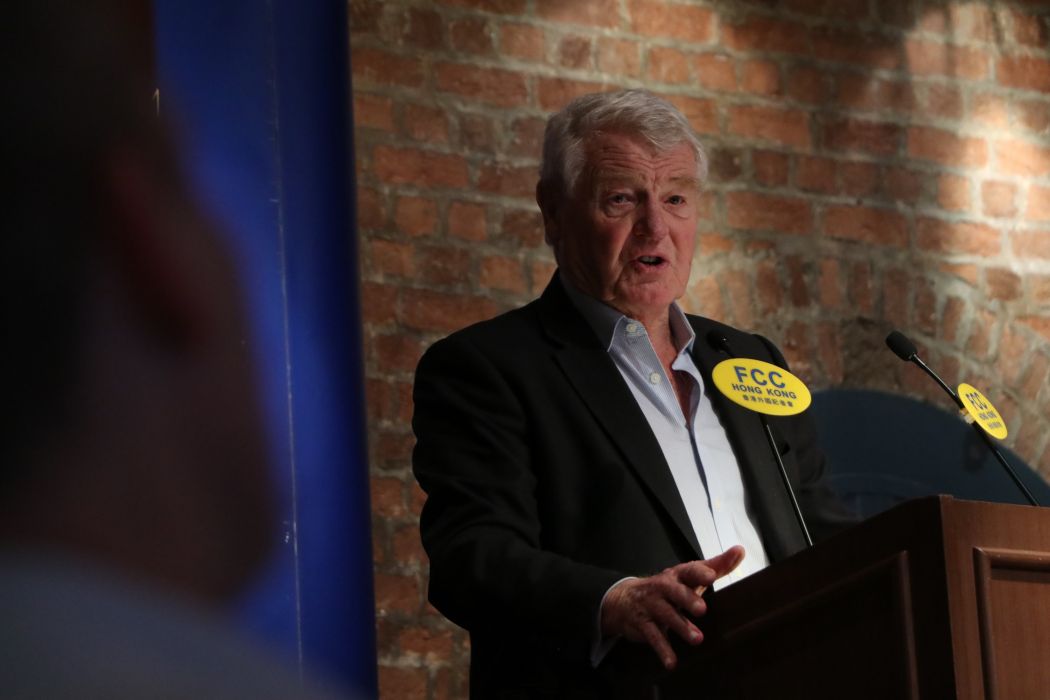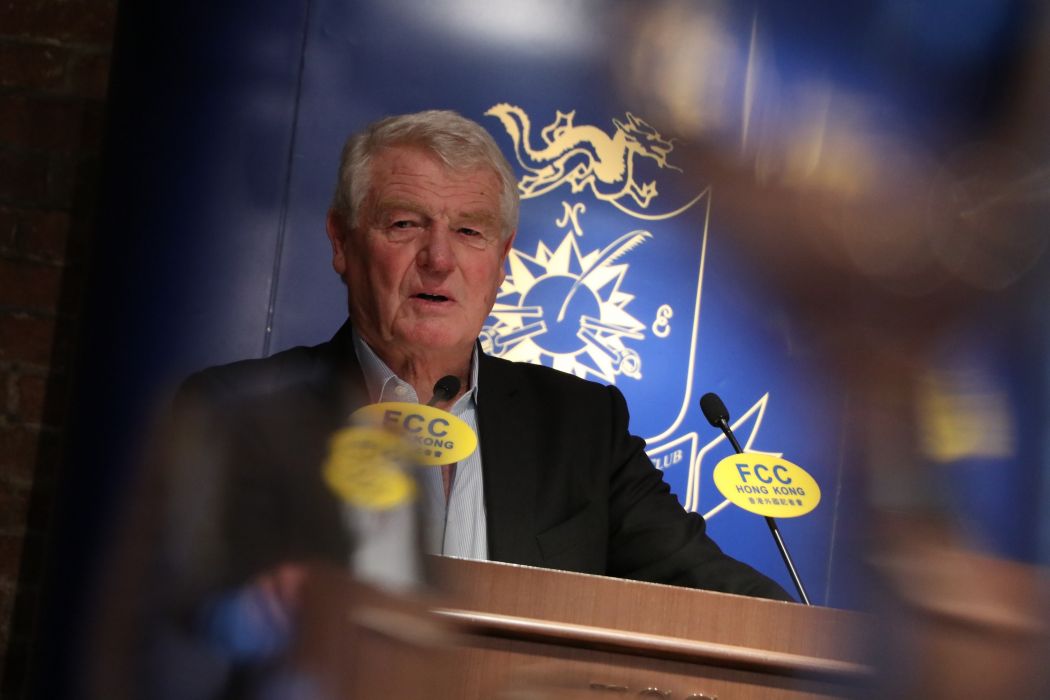Lord Paddy Ashdown, former leader of the UK Liberal Democrats, says Britain should give Hong Kong’s British National (Overseas) passport holders right of abode in the UK, if people feel too vulnerable living in the city.
Ashdown was delivering a speech at the Foreign Correspondents’ Club during a two-day visit. More than three million people hold the passport, which was designed for Hongkongers before the 1997 Handover. However, it does not grant bearers the right of abode in the UK.
Former Democratic Party lawmaker Emily Lau asked Ashdown if Britain would throw a lifeline to Hong Kong people and give them right of abode, “so that they can feel they have a home to go to, if things go desperately wrong here.”

“I know what BN(O) stands for, it stands for Britain says no,” Ashdown joked.
“On BN(O), you will not be surprised to know that I would favour very strongly that the BN(O) be extended to right of abode, if it is the case that the conditions in Hong Kong are created by whatever force that enables those who hold the BN(O) passport to feel so vulnerable that they can’t live here any longer, I think as a backstop assurance that should be provided.”
“…I don’t say we should do it now, but if it is the case that those who have BN(O) passports feel so vulnerable that they can’t live here any longer, and that is proven to be a case, then I think Britain should certainly be prepared to show generosity in that matter.”
However, he said that such a policy may not prevail against wider trends in the UK, which currently do not favour of immigration of any sort.
Lau also asked former Hong Kong governor Chris Patten the question when he visited in September. Patten said that he would raise the issue at the House of Lords.
Ashdown is a patron of the group Hong Kong Watch, which was founded by British conservatives activist Benedict Rogers who was denied of entry to Hong Kong.
“We must ensure Britain fulfil its legal and duty of honour to Hong Kong, and we will be doing that,” he said.
Freedom in China
Ashdown said Chinese people will seek freedom: “People are going to say thank you very much for the prosperity, but we really want some freedom. You just can’t live your life economically totally free and politically repressed. So my guess is that internal contradiction will begin to be unravelled long before the money runs out.”

He said that the abduction of Hong Kong booksellers into the mainland last year undermines confidence both in the rule of law and in the principle of free speech.
Referencing the case of the jailed pro-democracy demonstrators Joshua Wong, Nathan Law and Alex Chow, he said that those who break the law should be judged: “Though whether it was wise for the full might and majesty of a global super-power to come down on three young enthusiastic student demonstrators, one of whom a directly elected legislator who may have overstepped the limit, is a different matter.”
‘Two Countries, One System’
On Britain’s Brexit, Ashdown said it was a most extraordinary example of a country doing itself gross self-harm: “We have the most dysfunctional, dystopian government I have ever known. The prime minister has no authority, the cabinet is completely divided as to what kind of Brexit they want to have. This government can’t deliver on anything. It couldn’t deliver the Sunday papers without a scrap.”
He said his predictions should not be taken too seriously after he failed to foresee the 2015 Conservative election win, but he said: “[N]arrowly, I now think Brexit will not happen – not because it could not be done, but because the government is too incapable to deliver it.”

“The House of Commons will not vote for a hard Brexit, they will not vote for a throw-ourselves-over-the-cliff Brexit. They could vote for a soft Brexit but the government is too incompetent and too divided to be able to deliver any kind of soft Brexit that I think will make sense.” He also predicted that the government will collapse sometime next year.
He said Britain could resolve the issue of the breakup fee and European citizens living in Britain, but he could not see how it could solve the issue of the Irish border: “The only rational solution is two countries, one system… and have an economic border down the Irish sea.”
